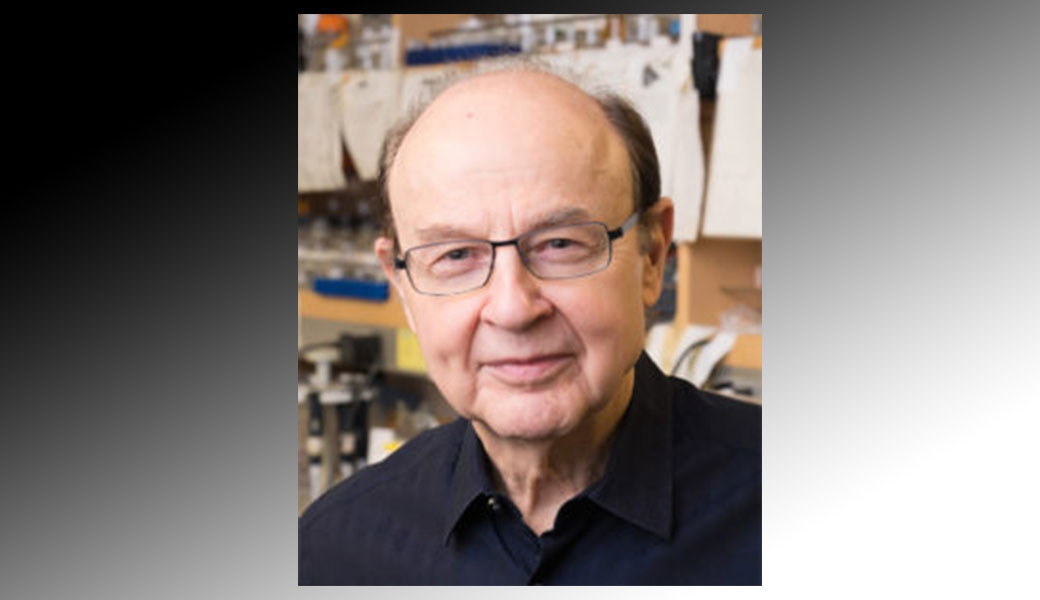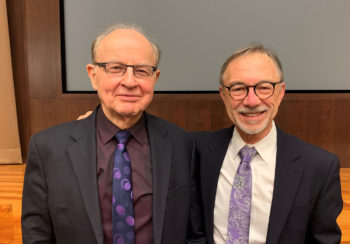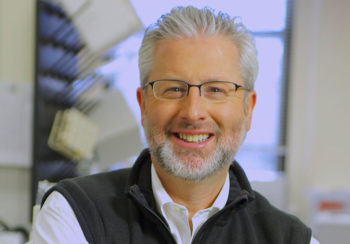Robert Roeder, head of the Laboratory of Biochemistry and Molecular Biology at The Rockefeller University, will deliver the 2020 George H. Boyd Distinguished Lecture on Jan. 10 at 3:30 p.m. in Masters Hall of the University of Georgia Center for Continuing Education & Hotel. His address, “Transcriptional Regulatory Mechanisms in Animal Cells,” will explore the area of research in which he’s excelled for five decades.
“Transcription represents the most important step in gene regulation, and for 50 years my work has been dedicated to an understanding of the nature and mechanism of action of the extraordinarily diverse components that execute and regulate transcription in animal cells in various physiological processes,” said Roeder, the Arnold and Mabel Beckman Professor at Rockefeller.
Roeder’s groundbreaking contributions to his field include the discovery and subsequent functional and mechanistic characterization of nuclear RNA polymerases, cognate classes of RNA polymerase-specific initiation factors, the first of several thousand gene and cell-specific transcriptional activators, and a variety of ubiquitous and tissue-specific transcriptional co-activators.
As part of his lecture, Roeder will discuss the biochemical mechanisms by which gene-specific transcription factors activate specific target genes, in relation to cell differentiation and transformation. Examples include the function of tumor suppressor p53, nuclear hormone receptors, B cell factors and leukemic fusion proteins.
In addition to authoring and co-authoring more than 550 publications, Roeder has received numerous accolades for his research, including election to the National Academy of Sciences, the Eli Lilly Award of the American Chemical Society, the NAS-U.S. Steel Award in Molecular Biology, the Louisa Gross Horwitz Prize, the Gairdner Foundation International Award, the ASBMB-Merck Award and the Albert Lasker Award for Basic Medical Research just to name a few.
Roeder has delivered his fair share of lectures and discussions on transcriptional regulation over the decades in an attempt to keep up with constantly evolving research and to educate the public on the significance of transcription to the health sciences.
“Like many other areas, the field of transcriptional regulation moves at a fast pace with increasing complexity,” said Roeder. “Bringing in leaders in these fields for special lectures should allow a broad and up-to-date appreciation of these important fields not only with respect to basic principles but also with respect to relevance to human health and disease.”
Open free to the public, the Boyd Distinguished Lecture Series, supported by the Office of Research and the William S. and Elizabeth K. Boyd Foundation, brings national leaders and policymakers in science, education and related fields to UGA to discuss applications of research to contemporary issues in education.






